How to Vote, conservatively
With only a week until the election, we Dis-Cons (disaffected conservatives) face a dilemma. A Labor government led by Bill Shorten – who the late great Bill Leak brilliantly depicted as the glove puppet of the trade union movement’s worst elements – is too terrible to contemplate. Yet the Scott Morrison-led Coalition would not normally be worthy of our votes. The basic reason for that lies in Morrison’s own personality. Like Shorten, he believes in nothing (his religion, and his family, apart).
How many times, since becoming Prime Minister, have we seen Morrison, faced with an issue of principle, fail at the fence? One example: having ‘considered’ moving our Embassy in Israel to its capital, Jerusalem, after President Trump’s principled decision to do so, his broken-backed failure to follow through ‘at this time’ was in keeping with so many others.
Ever since he became Prime Minister it has been obvious that Morrison’s most important task was to regain the votes of those Dis-Cons who, disgusted over the treachery of Tony Abbott’s sacking (in which Morrison himself ultimately played a key part), had deserted the party to park their votes with then more attractive spokespeople, such as Pauline Hanson or Cory Bernardi’s Australian Conservatives party. To that end, he needed to strike out boldly in three areas: energy/climate change policy, immigration policy and border protection. So where does the record stand on them today?
On border protection, his job was merely to reassert the policy established by Tony Abbott and General (now Senator) Jim Molan, with Morrison himself (then Minister for Immigration) playing his part; and to hammer home that Labor, if elected, could not be trusted to maintain it. He could hardly believe his luck when Shorten, stupidly almost beyond belief, lent Labor’s support to the Greens- and independents-inspired proposal to (in effect) demolish our offshore processing procedures for dealing with boat-people illegals.
Given Labor’s previously announced policy of abolishing temporary protection visas, this meant that two of the three pillars of our people smuggling deterrence policy will effectively vanish under Labor. As for the third – turning back boats when safe to do so – if anyone believes Shorten’s protestations to defend that (against not only his own powerful Left , but also the Greens, whose Senate support he will need to pass all his legislation), then the bargain price purchase of that Harbour Bridge awaits you.
So far, so good; but has anyone heard Morrison hitting his straps on this one since the campaign began?
On immigration, in the overall level of which (net overseas migration) voters are crying out for a serious cut, Morrison has failed entirely. Worse, he has treated us like fools, telling us that he has cut the ‘permanent settler’ component by 30,000 a year when in fact Peter Dutton had already done so under the radar in 2017-18. Meanwhile huge numbers of students (many of them nothing of the kind, as even the ABC’s Four Corners program has now discovered – at least ten years too late) and other temporary visa holders continue to flood in. Mark Morrison an abject failure on this one.
That leaves energy/climate change policy, where again Shorten has handed Morrison a gift via his bizarre emissions reduction and renewable generating policies. Morrison has been attacking these to some effect. Yet Shorten, continually ducking and weaving, is unable or unwilling to explain how he will achieve his objectives, and what their (undoubtedly large) cost will be to business and consumers. In the recent Sky News/ Courier-Mail debate Morrison never mentioned the matter until a final question on it invited doing so.
There are many other policy areas of interest that differentiate the two sides, including national security and foreign policy, where the dangers from a Greens-dependent Shorten government are truly frightening. There is also the issue of budget policy and future economic growth, on which Morrison has been plugging away since the campaign began. Important though that is, however, and while Treasurer Josh Frydenberg’s skillful performance in last month’s Budget should certainly be acknowledged, I have never believed that it would be a game-changer, either among us Dis-Cons or among the wider electorate (to whom, for the most part, it is largely a passing blur of incomprehensible figures).
Shorten’s spending promises since the campaign began have been legion. Before this article appears, we should have Labor’s costings, although how reliable they will be, given shadow-Treasurer Chris Bowen’s performance to date, remains to be seen. Against the background of that torrent of spending, however, it has been fascinating to see, in successive Newspolls, Labor’s primary vote sliding, not rising. Could it be that, the more Labor promises to spend, the more distrustful of its ‘money management’ abilities voters have become?
So where does this leave us Dis-Cons? Vote, wherever you can, for a National (uninspiring, but better than the Libs), or a decent independent, or even a Liberal if you can find an honest one (Tony Abbott, Andrew Hastie, Angus Taylor, Craig Kelly). However, given that we cannot contemplate a Shorten Labor government, it is vital that, when you come to your preferences, you place Labor second last (only above the Greens). And in the Senate, vote (for 12 candidates) below the line, not above it. In NSW, for example, my first vote will go to Jim Molan (disgracefully treated by his own party); my second to Cory Bernardi’s lead candidate, Sophie York; and so on. No Liberal (Molan apart) on the NSW joint Liberal/National Senate ticket is worth voting for; and again, no Labor, Green or Palmer UAP candidate should be included.
Got something to add? Join the discussion and comment below.
Get 10 issues for just $10
Subscribe to The Spectator Australia today for the next 10 magazine issues, plus full online access, for just $10.
You might disagree with half of it, but you’ll enjoy reading all of it. Try your first month for free, then just $2 a week for the remainder of your first year.

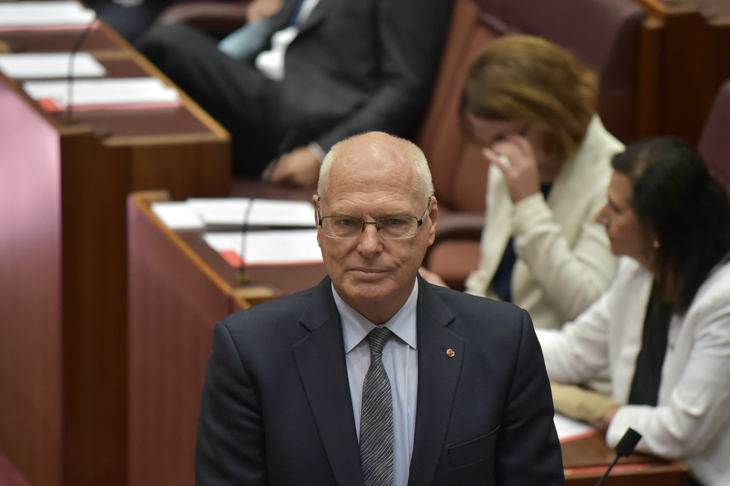
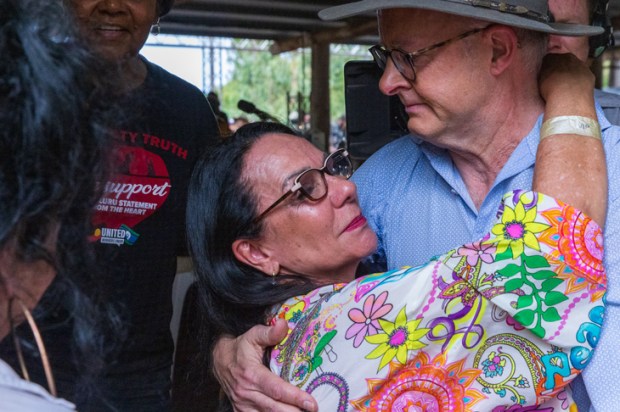
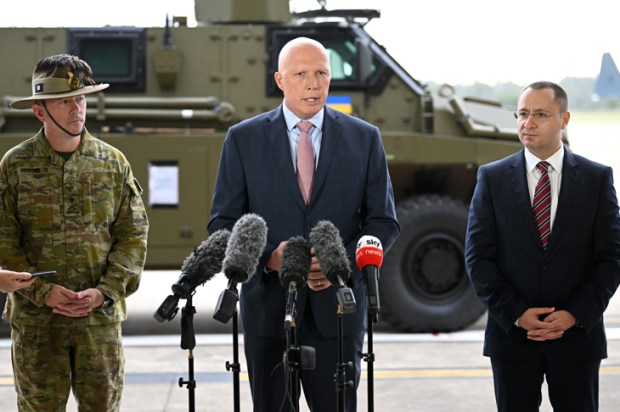
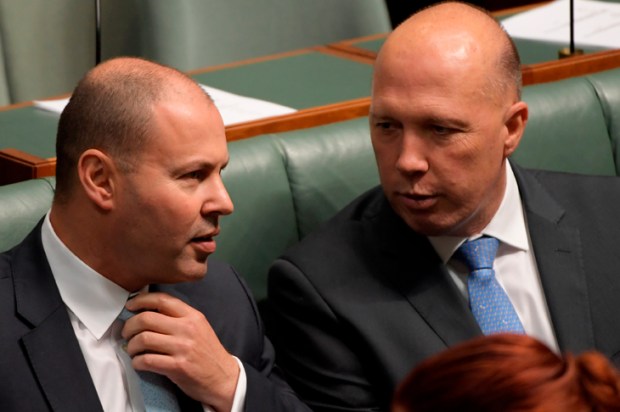
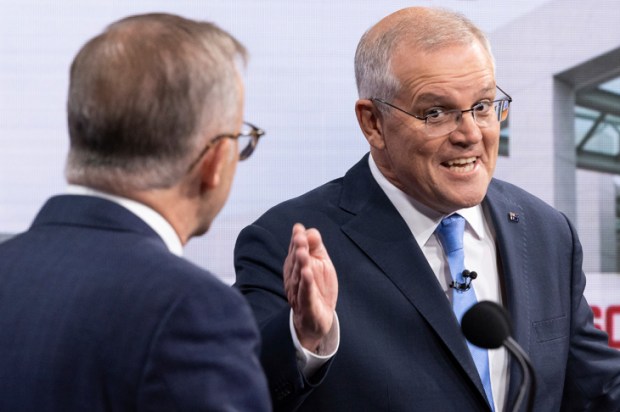

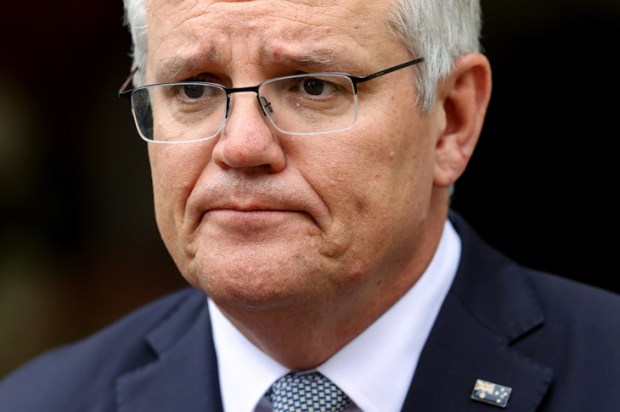






Comments
Don't miss out
Join the conversation with other Spectator Australia readers. Subscribe to leave a comment.
SUBSCRIBEAlready a subscriber? Log in